‘System continues to fail’: Ariel Bombara’s statement exposes deeper issue
Just days after her father gunned down a mother and her teen daughter before killing himself, Ariel Bombara filmed a powerful statement.
Just days after her father’s senseless actions claimed the lives of two innocent women, Ariel Bombara delivered one of the most unambiguous and articulate messages about domestic and family violence Australia has ever heard.
In a televised statement, the 27-year-old detailed the harrowing chain of events that led to May 24, when Mark James Bombara arrived at the Perth home of Jennifer Petelczyc, armed with a handgun and in search of his estranged wife, Rowena. He couldn’t find her, so instead, he murdered Ms Petelczyc and her teenage daughter, Gretl, before turning the gun on himself.
A stoic Ms Bombara outlined how she and her mother fled the family home in late March in fear of their lives, and how these fears – and their warnings that a Glock pistol was missing from Bombara’s 13-gun stash – were “ignored by five different male (police) officers across three occasions of reporting”.
“What my father did was an act of domestic violence. My mother and I made clear that lives were at risk, and we were repeatedly ignored. Repeatedly failed. Those failures have cost the lives of two incredible women,” Ms Bombara said.
“My father should always be considered accountable for his actions. They were his and his alone; however, there are authorities who should have helped us to stop him, and they failed.”
The police response to the Bombara women’s unheeded warnings, as well as Western Australia’s outdated gun laws, are now being scrutinised in light of her statement.
On social media, one person said Ms Bombara’s words should be required reading for every politician, lawyer, judge, magistrate and police officer in Australia.
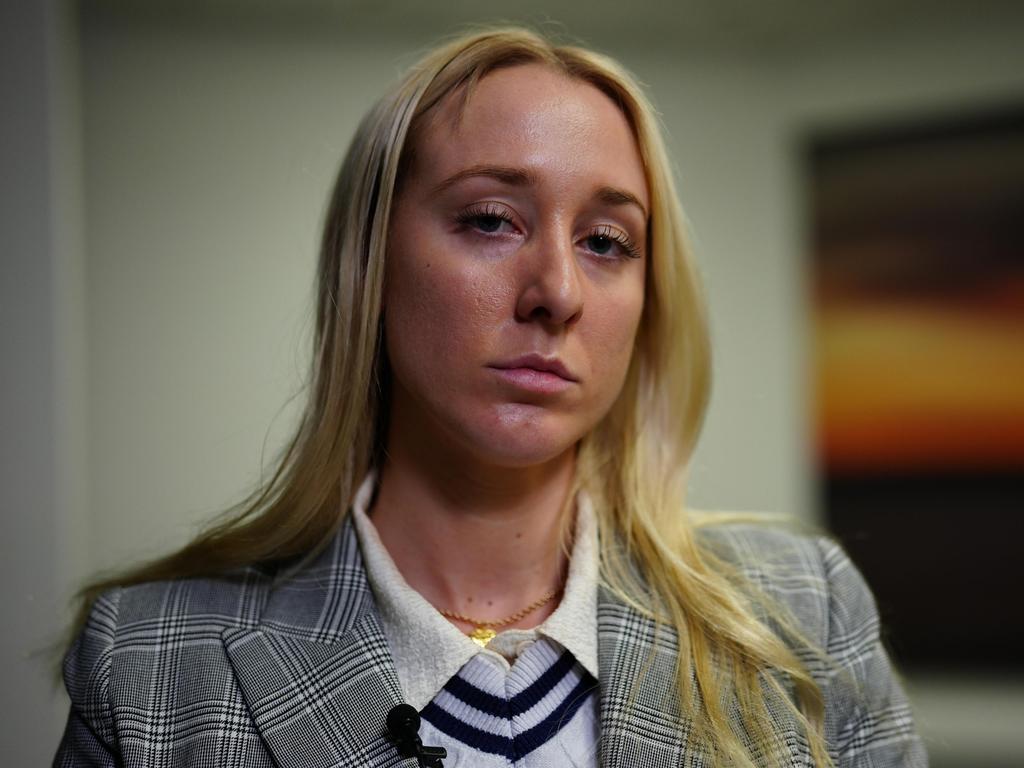
Her story, domestic and family violence experts told news.com.au, speaks to the fundamental need for us to take victim-survivors seriously, the “precarious” nature of gun laws in Australia, and our systems’ ongoing failure to adequately respond to the so-called “national crisis” of male violence that has allegedly taken the lives of 31 women this year, and endangers countless others every day.
‘The system has let them down so dramatically’
Ms Bombara and her mother, Women’s Legal Services Australia executive officer Lara Freidin said, “should have been able to trust that our response systems would intervene to protect them and their loved ones”.
“There were clear indicators that the offender posed safety risks, including repeated reports to police that (Ms Bombara) was fearful for her safety, the offender’s possession of multiple firearms, including unlicensed ones, and a recent separation from the relationship,” Ms Freidin said.
“The fact that the system has let them down so dramatically is absolutely devastating.”
Monash University Associate Professor of Criminology, Dr Asher Flynn, echoed the sentiment.
Not only is their experience a “really tragic example” of the myriad ways victim-survivors can be let down; it also “reinforces why we need to ensure that instances of domestic and family violence, including any breaches of orders, are treated seriously by frontline responders”.
“(We need to) have the resources in place to support women in leaving violent relationships and situations,” Dr Flynn, who is also chief investigator of the ARC Centre of the Elimination of Violence Against Women, explained.
“Research shows that escaping a violent situation is one of the most dangerous moments for victim-survivors, and we need to rectify this situation to make it easier and safer to leave.”
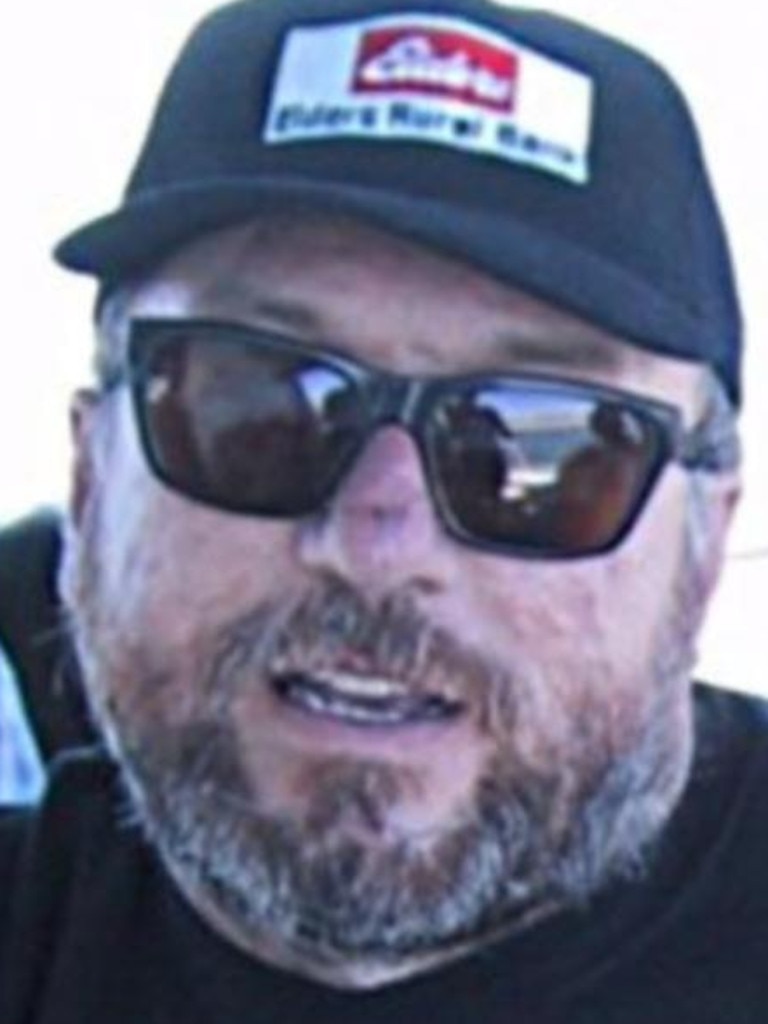

Underestimation of risk is ‘highly concerning’
The absence of physical violence or damage to property can also impact authorities’ estimation of risk to a victim-survivor.
WA Police Commissioner Col Blanch repeatedly stressed last week that police “did exactly what their policy says they should do” in response to the concerns raised by the Bombara women.
“To say nothing was done was wrong. A lot was done,” Commissioner Blanch told ABC Radio Perth on Wednesday.
What police did or didn’t do “is obviously under investigation now”, criminologist, social worker and Leneen Forde Chair in Child and Family Research at Griffith University, Dr Silke Meyer, said.
“(But) these experiences point to a broader issue of the underestimation of escalating risk in the absence of physical harm, and the failure to include immediate supports of victim-survivors in domestic and family violence-related risk assessment,” Dr Meyer said.
“It’s highly concerning in the current landscape, where years of national conversations around coercive control, non-physical forms of domestic and family violence and the time of separation have highlighted the high risk of escalating harm in these cases.”
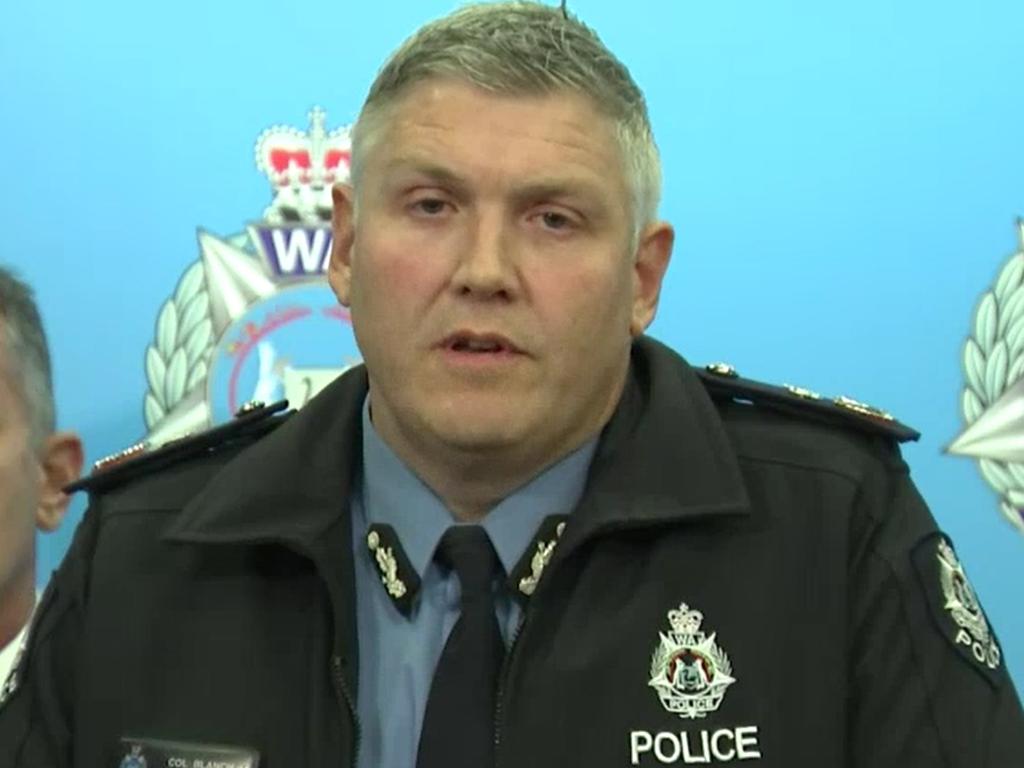
Australia can’t ‘police our way out’ of this
Because of these blind spots, “many victim-survivors have to rely on their own safety planning and protection mechanisms despite police awareness of their situation”, Dr Meyer added.
“This is partly the result of inadequate police responses, but equally the result of perpetrators’ determination to maintain control over the victim-survivors,” she said.
“Unfortunately, police alone can’t keep victims safe because our justice responses are not set up to do that. As advocates, we’ve said for a long time that we won’t be able to police our way out of the national domestic and family violence crisis.
“While adequate police responses are a critical piece of the puzzle, they are only one part of the system that needs to respond with shared risk monitoring and management. Men who commit domestic and family violence-related homicide are usually visible and known to multiple parts of the service system.”
Failures in our system responses must be identified, Dr Meyer said, so that we can learn from them and improve current practice.
At the same time, “it’s also important to recognise reform work underway, and that there are many officers out there who work towards improving police responses to domestic and family violence”.
Dr Flynn agreed, pointing to research that’s shown “demonstrable improvements” in policing responses to victim-survivors.
“The challenge lies in the individual nature of reporting. In other words, it can depend on the officer you speak with, what type of treatment you receive,” she said.
“Key here is ongoing training for police, but ensuring there are case studies included in that training to give voice to the realities of what domestic and family violence looks like – there is no single form.”
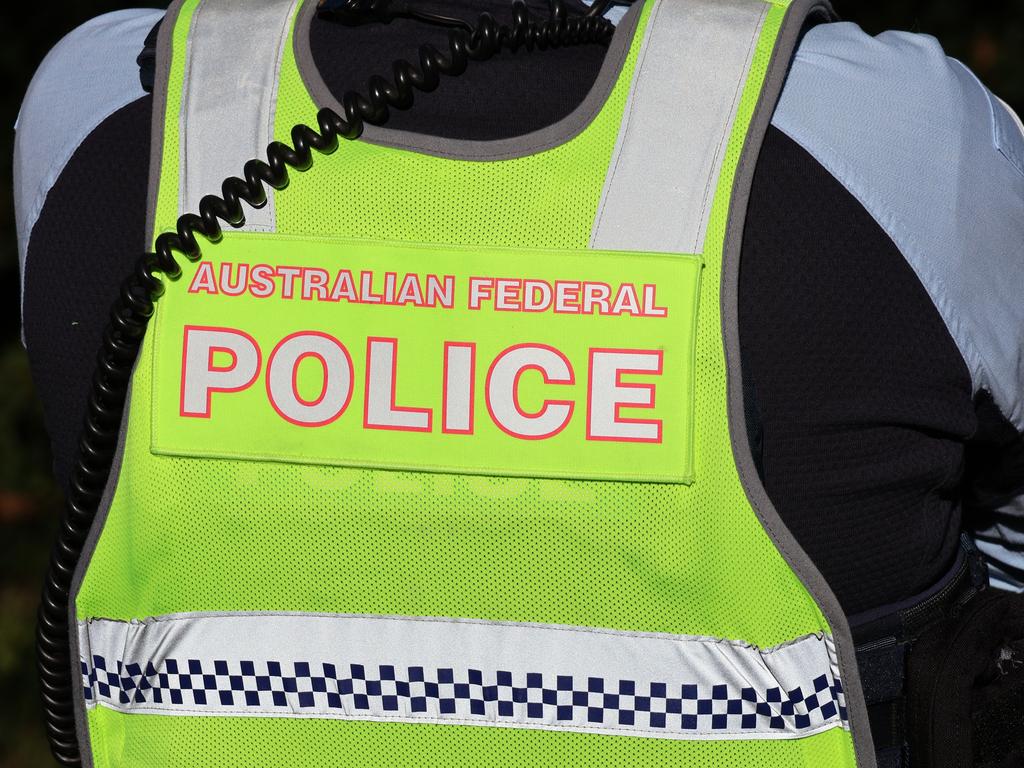
‘We need to listen to victim-survivors’
In the wake of the tragedy, both West Australian Premier Roger Cook and Police Minister Paul Papalia have said they want planned new gun laws in the state strengthened further.
As well as restricting the number of guns a person can own, Mr Papalia would like for police to be given the discretion to remove firearms from people “where there’s the potential for harm to be done”.
Dr Flynn said we as a nation “also need to consider how and why a person can own and acquire so many firearms”.
“There is very little justification for this ever, and absolutely not if there is any suggestion of violence,” she said.
Dr Alison Evans is the CEO of Western Australia’s leading voice for women and children affected by gender-based violence, the Centre for Women’s Safety and Wellbeing.
She said that while firearms reform is “appropriate and necessary, it won’t create the change that is so desperately needed to prevent domestic violence homicide”.
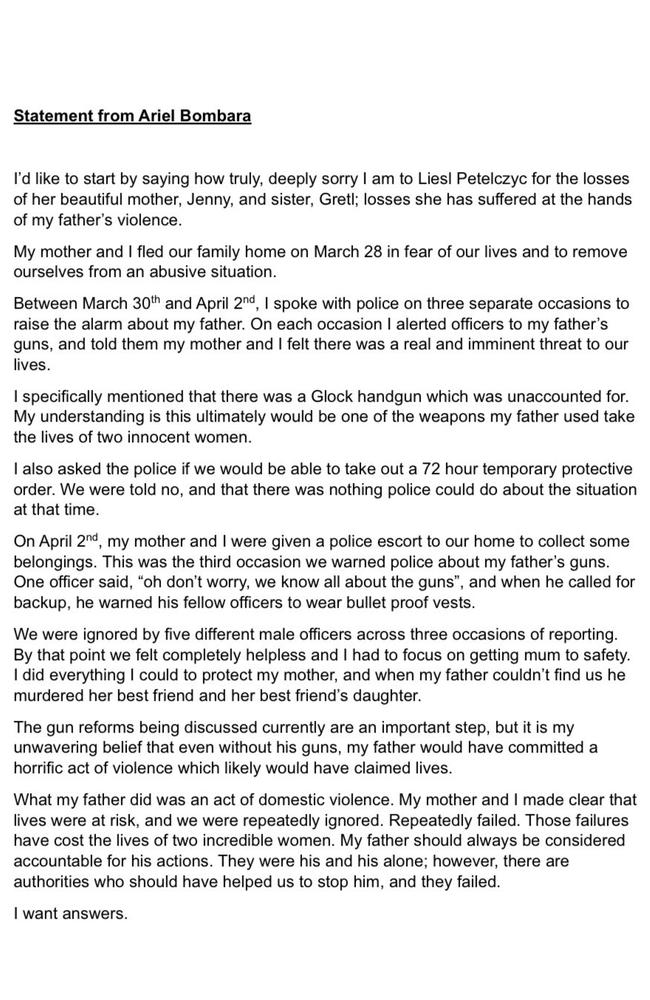
“Ariel Bombara herself said that she felt her father would have committed his acts of violence even if he did not have access to guns. We need to listen to victim-survivors,” Dr Evans said.
“Gun reform will make some women in the community safer – but only those who are being threatened with gun violence. We know that women are terrorised and killed with run-of-the-mill household items that have been weaponised at the hands of violent men.”
If Australians are to take anything from this tragedy, Dr Meyer said, it is that “we need to listen to and believe victim-survivors” when they express fears for their safety.
“We need to understand and identify risk to others associated with a primary victim-survivor, including children, family and friends,” she added.
“And we need to recognise that domestic and family violence risk management is a whole-of-system response, and hold that system accountable accordingly.”
Originally published as ‘System continues to fail’: Ariel Bombara’s statement exposes deeper issue





